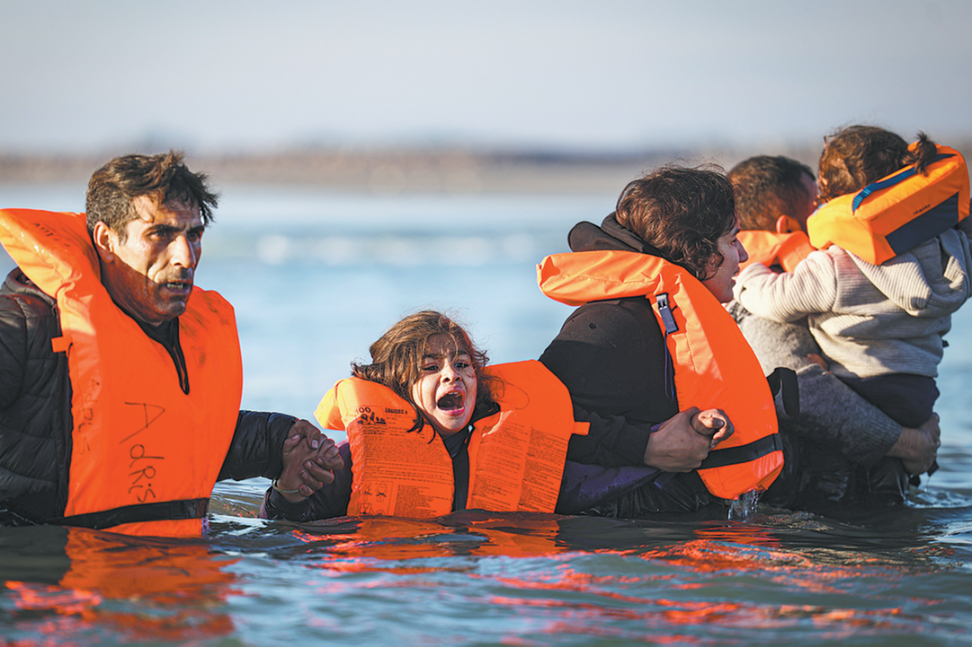US' motivation for Pacific Islands summit questioned
By YIFAN XU in Washington | China Daily Global | Updated: 2022-09-28 10:44

While the US hosts a summit meeting of Pacific Islands leaders this week, some experts are questioning if the objective is to include the nations as part of a geostrategic strategy rather than treat them as partners.
"The US tends to see all policy actions through the geostrategic and national security lens. As such, the Pacific Island countries, despite having a population of less than 10 million, are first and foremost seen as ramparts constituting the second-island chain line of defense," Sourabh Gupta, a senior fellow at the Institute for China-America Studies (ICAS) in Washington, told China Daily. "For China, on the other hand, these countries are development partners."
President Joe Biden will host the summit in Washington on Wednesday and Thursday. Officials and analysts say that the US is looking to strengthen ties with the islands by demonstrating its commitment.
"Left to their own choices, the Pacific Islands states would much prefer to see themselves not as strategic pawns but as partners tackling the development and climate change challenges facing the South Pacific," Gupta said.
Gupta detailed what he believes are the US' motivations during the summit: "First, it will convene more such summits with the Pacific countries to maintain institutionalized continuity. Next, it will have senior and mid-level diplomats show up more often in the region to communicate its interest and commitment. Third, it will try to crowd-in allies as co-partners in the capacity-building of these Pacific Island nations. All fine and good. But the real test will be in the staying power — or lack of — the US' commitment."
Zongyuan Zoe Liu, a fellow at the Council on Foreign Relations, in a story on Honolulu Civil Beat said that this is the first-ever Pacific Island summit held by a US administration, which "just goes to show the region from a historical perspective has not been our top priority".
US Vice-President Kamala Harris acknowledged that the US may not have provided the diplomatic attention the region deserved in a virtual address to the Pacific Islands Forum, in Suva, Fuji, in July.
In an op-ed titled "The US should get real about history and colonialism before China does", Akhil Ramesh, a consultant to the EastWest Institute, said that the Western countries have historically siloed the Pacific Island nations as tourist destinations, sources of mineral and natural resources, and even as a destination for nuclear tests.
"The US conducted 67 nuclear tests in the Marshall Islands from 1946 to 1958, leading to health and environmental consequences that continue to affect residents today. Those tests include the 'Castle Bravo' bomb at Bikini Atoll in 1954 — which is the largest thermonuclear detonation ever conducted by the US," he wrote, saying that that the Biden administration should "change that prism" and "revisit its understanding of history".
According to United Nations Comtrade data, most Pacific Island nations' two-way trade with China overtook Australia's starting in 2013.
Data released by the Lowy Institute showed that China provided close to $1.5 billion in foreign aid to the Pacific Islands region in grants and loans between 2006 and 2017.
Chinese President Xi Jinping visited Fiji in 2014 and Papua New Guinea in 2018 and met with the leaders of the established island nations.
There has not been a sitting US president who has visited a Pacific Island nation.
The Solomon Islands and China reached a security agreement in April, and US Secretary of State Antony Blinken said it would be watched closely.
Kurt Campbell, the White House coordinator for Indo-Pacific affairs, and Daniel Kritenbrink, the State Department's assistant secretary for Asia-Pacific, visited the region in the same month.
Because of their location and natural conditions, Pacific Island nations usually see the climate as a top priority.
At the Pacific Islands Conference of Leaders held in Honolulu two weeks ago and attended by more than 10 Pacific Island nations and territory leaders, Gerald Zackios, Marshall Islands ambassador to the US, stressed "the existential threat that climate change poses".
"The countries in the region would really like to make sure that this summit does have real deliverables to the region in addressing key issues," he said.
"For us, the most important security issue is climate change," said Siaosi Sovaleni, the prime minister of Tonga, at a conference hosted by the Carnegie Endowment for International Peace on Sept 19.
"It's not like the US is starting from zero in its relationship with a lot of the Pacific Island states on climate, but I get the sense that the political-military issues are at the top of the [US political] priority list," Scott M. Moore, director of China Programs and Strategic Initiatives at the University of Pennsylvania, told Politico.
In July, the US proposed to triple its funding for ocean resilience in the region to $60 million annually over the next decade, but congressional approval is still pending.
On the sidelines of the UN General Assembly in New York last week, Blinken hosted a meeting with foreign ministers from the Partners in the Blue Pacific (PBP), which formed in June, including the US, Australia, Japan, New Zealand and the UK.
After the meeting, Campbell said that the group's agenda would be guided by Pacific Island countries' needs but he spent much time talking about how "China has ambitions in the Pacific".
"A fundamental problem in US-Pacific dialogue is that island leaders do not regard China as a threat to their security and do not find US references to 'rules-based order' or 'bad actors' particularly relevant," Terence Wesley-Smith and Gerard Finin wrote in "Partners or pawns? The Pacific Islands in US strategy and the Washington summit", published on the website of Development Policy Centre, an Australian think tank.
Wesley-Smith is a professor emeritus in the Center for Pacific Islands Studies at the University of Hawaii at Mānoa, and Finin is a former director of the Pacific Islands Development Program, East-West Center, Hawaii.
"Pacific leaders prefer to be engaged on their own terms rather than as part of a wider endeavor to counter China," they wrote. The authors also noted that even the invitation list "is not based on (the Pacific Islands) Forum membership — the preferred, more inclusive model for regional engagement — but is limited to island nations that are UN members".
The US is looking to extend and renew agreements known as compacts with the Marshall Islands, Micronesia and Palau. The compacts were signed in the late 1980s and gave the US defense responsibilities and the right to build military bases in exchange for economic support. The compacts with the Marshall Islands and Micronesia will expire in 2023, and the one with Palau will expire in 2024.
"They are being renegotiated, and there is a growing consensus amongst experts that these island nations could seek (out) China for support should the talks fail," Ramesh said in his op-ed.
Among the 12 Pacific Island countries invited by the US to this week's summit, there are four "diplomatic states" of Taiwan.
"The issue of recognition of China, and derecognition of Taiwan, is the obvious issue at hand, given that Taiwan's few remaining diplomatic partners are mostly clustered in this Pacific Islands geography," Gupta said.
"But beyond the recognition/derecognition issue, the Pacific Islands are not a factor in the larger US-China contest regarding Taiwan," he said. "They will not be involved in any way, shape, or form in a Taiwan Strait contingency — even from a non-military diplomatic standpoint."
























